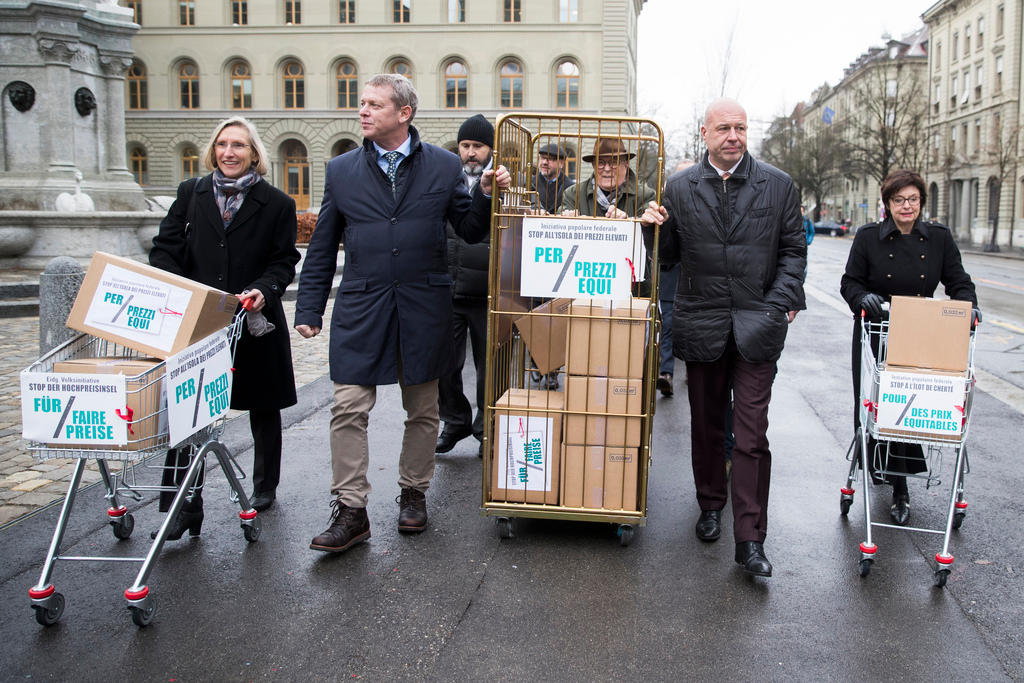
Swiss fair price initiative heads for nationwide vote

The Swiss people’s initiative “For Fair Prices” handed in 107,908 citizen signatures on Tuesday – well over the 100,000 required to trigger a nationwide vote on the issue of affordable consumer goods.
The text of the initiative, presented with the tagline “stop the island of high prices”, says it “declares war on general importers and foreign suppliers who abuse their power”.
In Switzerland, some consumer goods are much more expensive than in other countries – up to 40% more for clothes and 70% for cosmetics. But the initiative’s proponents argue that these differences in price are only due in small part to the nation’s high salaries and infrastructure costs. In fact, they argue, foreign suppliers keep prices artificially high in Switzerland, exploiting consumers’ purchasing power.
The initiative demands that more businesses be subjected to regulations for abuse of market power. Suppliers who refuse to abide by such rules should be subject to Swiss prosecution abroad, it says.
The plan would not concern agricultural prices, which are politically controlled, or prices for medications, which are set by the Federal Council, Switzerland’s executive body.

More
What to do about Switzerland’s eye-watering prices?

In compliance with the JTI standards
More: SWI swissinfo.ch certified by the Journalism Trust Initiative



























You can find an overview of ongoing debates with our journalists here . Please join us!
If you want to start a conversation about a topic raised in this article or want to report factual errors, email us at english@swissinfo.ch.